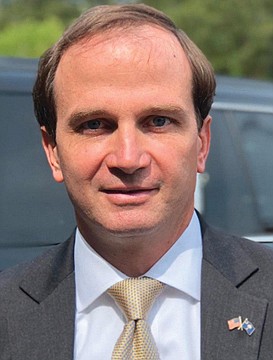Court ruling allows handgun sales to 18- to 20-year-olds
Jeremy M. Lazarus | 7/15/2021, 6 p.m.
If you are old enough to vote, you are old enough to own a handgun, a panel of the Richmond-based 4th U.S. Circuit Court of Appeals decided Tuesday.
By a 2-1 margin, the panel threw out federal laws that bar licensed firearms dealers from selling handguns to 18- to 20-year-olds— handing a huge victory to 2nd Amendment supporters and creating disarray among federal officials charged with enforcing gun laws against underage sales.
“Our nation’s most cherished constitutional rights vest no later than 18,” Judge Julius N. Richardson wrote in an opinion in which Judge G. Steven Agee joined and from which Judge James A. Wynn Jr. dissented. “And the Second Amendment’s right to keep and bear arms is no different.”
“...Despite the weighty interest in reducing crime and violence,” Judge Richardson continued, “we refuse to relegate either the Second Amendment or 18- to 20-year-olds to second class status.”
Tuesday’s ruling was prompted by a lawsuit by 19-year-old Natalia Marshall, a University of Virginia student who said she wanted a handgun as protection from an abusive ex-boyfriend.
A federal law, enacted in 1968, bars federally licensed dealers from selling handguns to persons under age 21. But those age 18 and over are still permitted under federal law to purchase handguns from a private party. They also are allowed to buy long guns from a dealer.
Rejecting arguments from the government and gun safety groups, the majority decision overturned a lower court ruling dismissing a case brought by Ms. Marshall, who was 18 at the time, and Tanner Hirschfeld, 20.
Mr. Hirschfield, now 21, was dismissed as a plaintiff in the appeal, with Ms. Marshall allowed to continue as she still cannot purchase a weapon from a federally licensed dealer.
For now, nothing immediately changes. The opinion was remanded to the lower court in the Western District of Virginia for further proceedings.
If the decision stands, the initial impact would be felt in the states within the appellate court’s jurisdiction, Virginia, North Carolina, South Carolina, Maryland and West Virginia. In those states, the U.S. Bureau of Alcohol, Tobacco Firearms and Explosives would be barred from preventing licensees from selling firearms to young people at least 18 years of age.
The U.S. Justice Department, which defended the 21 age limit, is digesting the ruling and initially declined comment.
Department lawyers could request that the appellate court’s 15 judges rehear the case or appeal to the Supreme Court, potentially setting the stage for a national decision.
In his dissent, Judge Wynn wrote that his colleagues did not conduct the proper analysis in reaching their conclusion and were second-guessing Congress, which had imposed a limited burden on those under 21.
He noted that the federal laws at issue do not bar 18- to 20-year-olds from buying shotguns and rifles, from possessing handguns or from buying from unlicensed sellers, though separate state laws might bar such transactions.
Because the Second Amendment “alone protects a direct and lethal right to endanger oneself and others,” Judge Wynn stated that that majority failed to give the “substantial deference to the judgments of Congress,” which, he stated, created the age limit on licensed dealer sales in 1968 to promote public safety after holding hearings and reviewing detailed information related to the history of youthful misuse of firearms, scientific research, crime data and other information.
“I, therefore, would not usurp the legislative role by invalidating these measures based on a judicial assessment that they have not worked,” Judge Wynn wrote.







